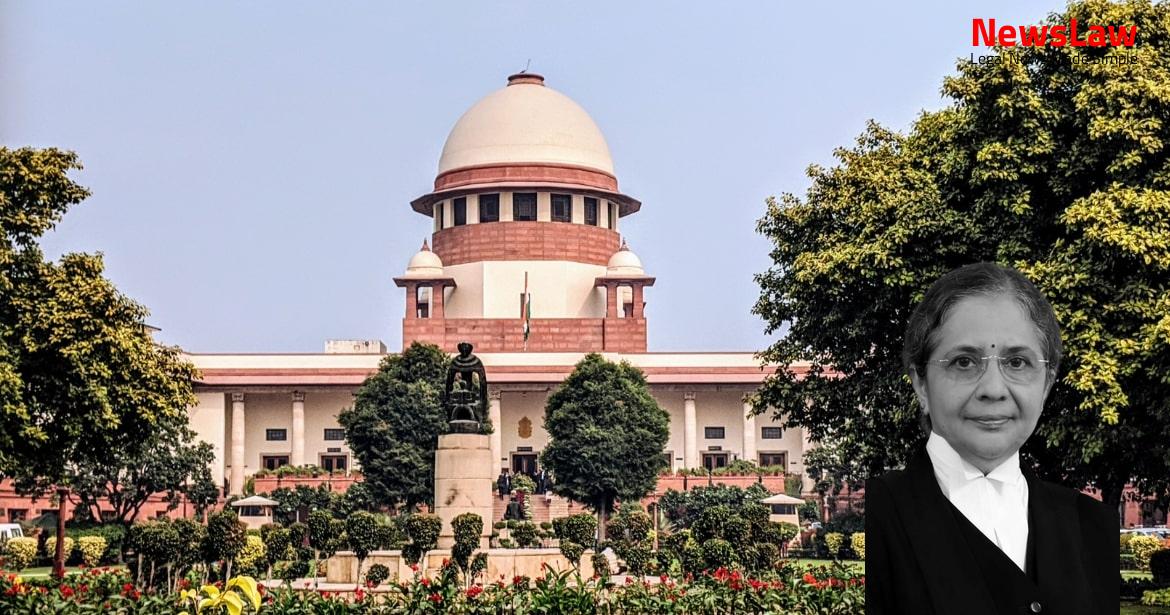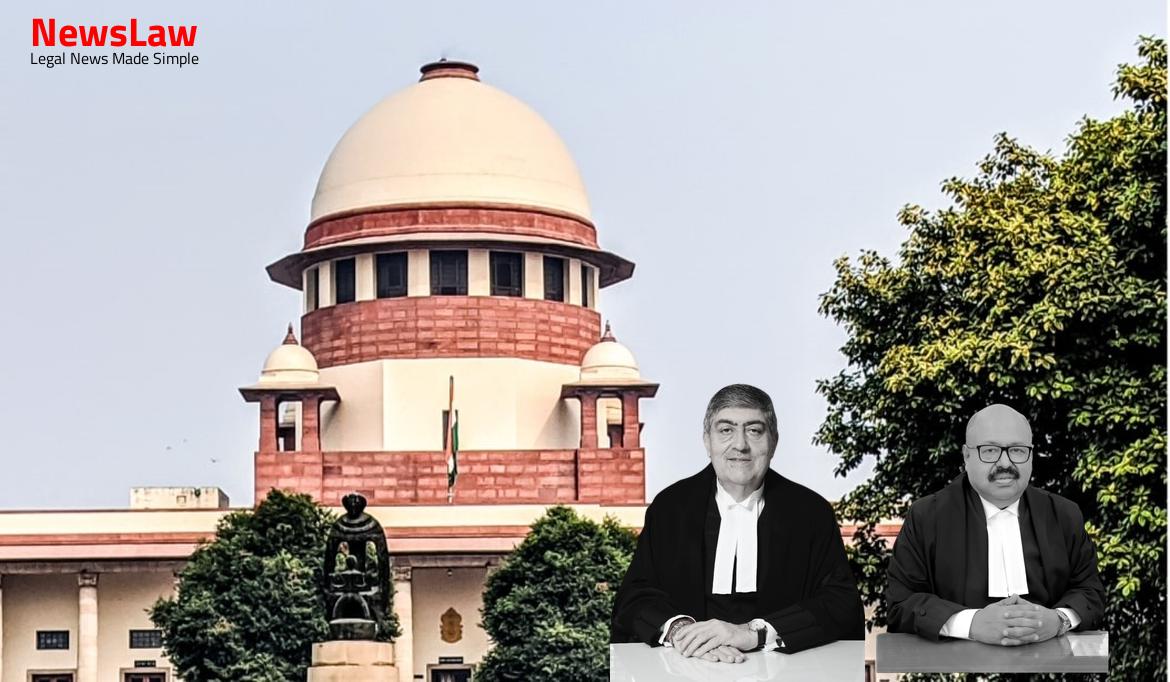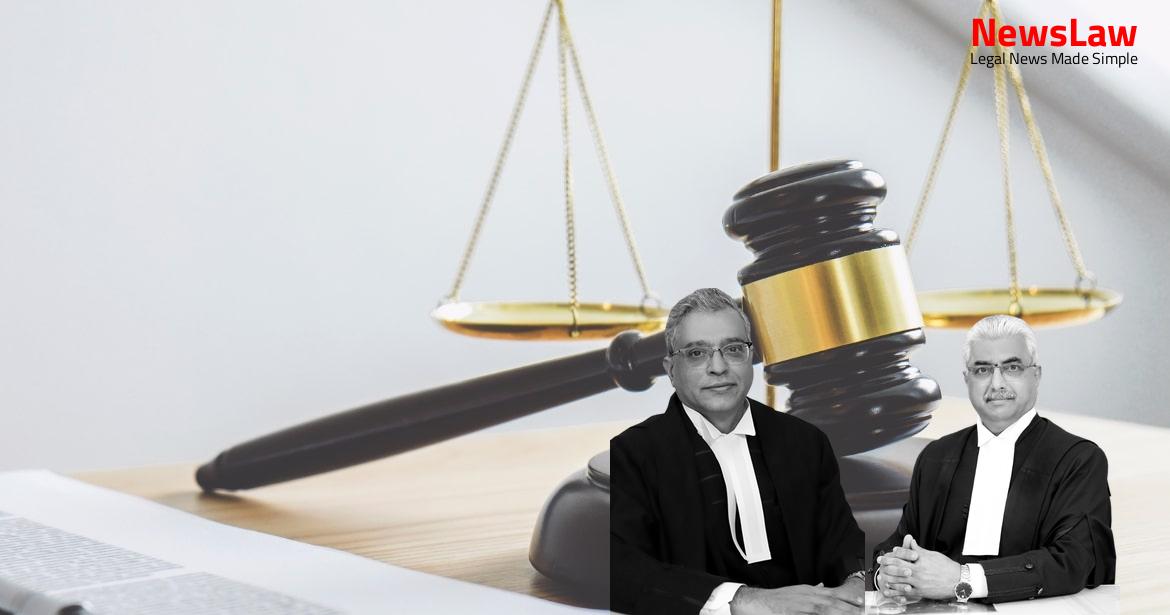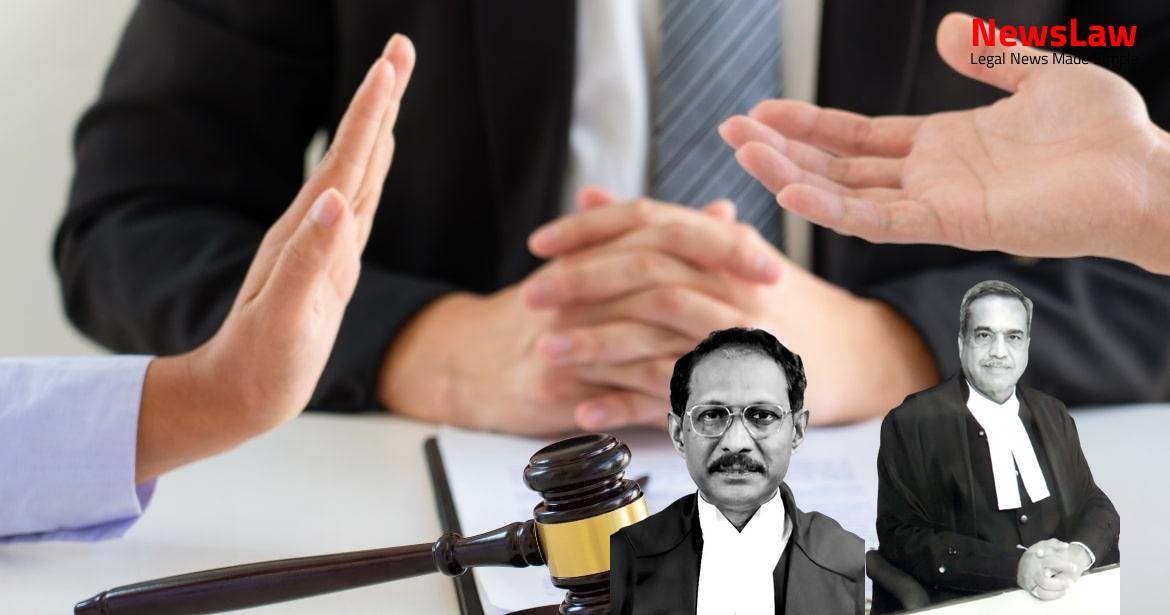In a landmark judgement by the Supreme Court of India, a crucial ruling was issued regarding money laundering offenses. The case revolves around the Prevention of Money Laundering Act and involves intricate details of illegal excavation and theft of coal. The judgement sheds light on the procedural aspects of summoning witnesses and the application of the Code of Criminal Procedure in matters related to money laundering. Follow the case closely to understand the implications of the ruling on financial crimes in the country.
Facts
- An FIR/R.C. was registered by CBI, ACB, Kolkata on 27.11.2020 for offenses related to illegal excavation and theft of Coal.
- ECIR was registered by the Respondent in New Delhi based on the FIR on 28.11.2020.
- Investigation revealed money laundering activities amounting to Rs. 1300 Crores in connection with the case.
- Inspector Ashok Kumar Mishra allegedly received Rs.168 crores from co-accused for delivery to political bosses.
- Rs.168 crores were transferred through vouchers to Delhi and overseas.
Also Read: Case of Vetrivel vs. State: Upholding Legal Integrity and Swift Justice
Arguments
- Appellant No.2 has been summoned to appear in New Delhi despite being a homemaker and a mother of two children.
- The ED has not shown how it could be prejudiced by calling Appellant No.1 to its office in Kolkata, where the ED has the Zonal Office.
- The Department of Revenue, Ministry of Finance issued administrative instructions consistent with Section 51 of PMLA that demarcate specific territorial jurisdiction of various Zonal Offices of the ED.
- Summoning Appellant No.2 in Delhi is deemed illegal and reeks of mala fide.
- Section 50 of PMLA indicates ED’s power to summon but does not provide the procedure for the exercise of such power.
- The procedure followed by the ED in summoning the Appellants could not be considered fair, just, and reasonable procedure established by law under Article 21 of the Constitution.
- Section 91 of Cr.P.C. does not have territorial jurisdictional limits and does not provide any exemptions for women, minors, or the elderly unlike Section 160 Cr.P.C.
- Section 91 Cr.P.C. is not equivalent to the powers under Section 50 of PMLA. A police officer must use Section 91 Cr.P.C. to request the provision of any document.
- Section 160 Cr.P.C. pertains to a Police Officer conducting an investigation under Chapter XII of Cr.P.C., while the process outlined in Section 50 of PMLA is more of an inquiry and not a full-fledged investigation as held in the case of Vijay Madanlal.
- The Enforcement Directorate (ED) has the authority to summon any individual deemed necessary to provide evidence or produce records, as stipulated in Section 50 of PMLA.
Analysis
- The procedure for summons, production of documents, and recording statements under the Prevention of Money Laundering Act (PMLA) is not detailed as in the Criminal Procedure Code (Cr.P.C.)
- The power of police officers to require attendance of witnesses lacks guidance on its exercise
- The PMLA is a self-contained code focusing on preventing money laundering and confiscating related properties
- The Cr.P.C. provisions regarding territorial jurisdiction are crucial for police investigation jurisdiction
- The protection of women provided under Section 160 of the Cr.P.C. extends to the PMLA
- Section 65 of the PMLA makes Cr.P.C. provisions applicable, unless inconsistent with the PMLA
- In the absence of specific procedures for summoning witnesses in PMLA, Cr.P.C. procedures apply
- Article 21 of the Constitution mandates that procedures curtailing rights must be just and reasonable
- The application of the Code of Criminal Procedure (Cr.P.C.) is not barred as long as its provisions are consistent with the Prevention of Money Laundering Act (PMLA).
- Section 4(2) of the Cr.P.C. and Section 65 of the PMLA together allow for the application of the Cr.P.C. in matters related to money laundering.
- The judgement in the case of Vijay Madanlal Choudhary and Others vs Union of India and Others did not address the specific procedure for summoning under Section 50 of the PMLA.
- Section 50 of the Prevention of Money Laundering Act (PMLA) allows authorized officials to issue summons for evidence or record production during proceedings under the Act.
- The summoned person must attend, state truth, and produce documents as required.
- Statements made under Section 50 are admissible in evidence and do not violate Article 20(3) as the person is not yet accused.
- The special procedure under PMLA overrides the Code of Criminal Procedure (Cr.P.C) for money laundering offences.
- The Central Government has laid down rules for the manner of forwarding reasons and materials to the Adjudicating Authority.
- The territorial jurisdiction for summons is based on the location where the proceeds of crime are connected.
- The summoned persons are required to appear in person or through authorized agents as directed by the officer.
- The wide scope of ‘proceeding’ under PMLA covers adjudication before the Adjudicating Authority or Special Court.
- There is no formal accusation at the stage of issuing summons, and the process is for the collection of information or evidence.
- The Authority may issue summon to any person they deem necessary for the proceedings.
- At this stage, the person summoned cannot claim protection under Article 20(3) as it is not testimonial compulsion.
- Appellant No.2 filed a criminal miscellaneous petition before the High Court challenging the Order dated 18.09.2021 and the Order dated 30.09.2021.
- Appellant No.2 did not produce the said Orders before the Court in the current Appeals.
- The High Court had taken cognizance of the complaint and summoned Appellant No.2 before the Court.
Also Read: Supreme Court Judgment: Bank’s Obligation under MSMED Act vs. SARFAESI Act
Decision
- The Complaint is pending before the Court of Chief Judicial Magistrate
- No opinion expressed on the merits of the Complaint
- No illegality found in the orders passed by the concerned court
- The Complaint will proceed further in accordance with the law
- Both Appeals are dismissed for being devoid of merits
Case Title: ABHISHEK BANERJEE Vs. DIRECTORATE OF ENFORCEMENT (2024 INSC 668)
Case Number: Crl.A. No.-002221-002222 – 2023



